Smartware USN3D201 Smartcard Reader User Manual USN1se USN2se USN3se
Smartware Smartcard Reader USN1se USN2se USN3se
Contents
- 1. User Manual.pdf
- 2. User manual USN1se_USN2se_USN3se.pdf
- 3. User manual USN3se_MX3se-3I3P.pdf
User manual USN1se_USN2se_USN3se.pdf
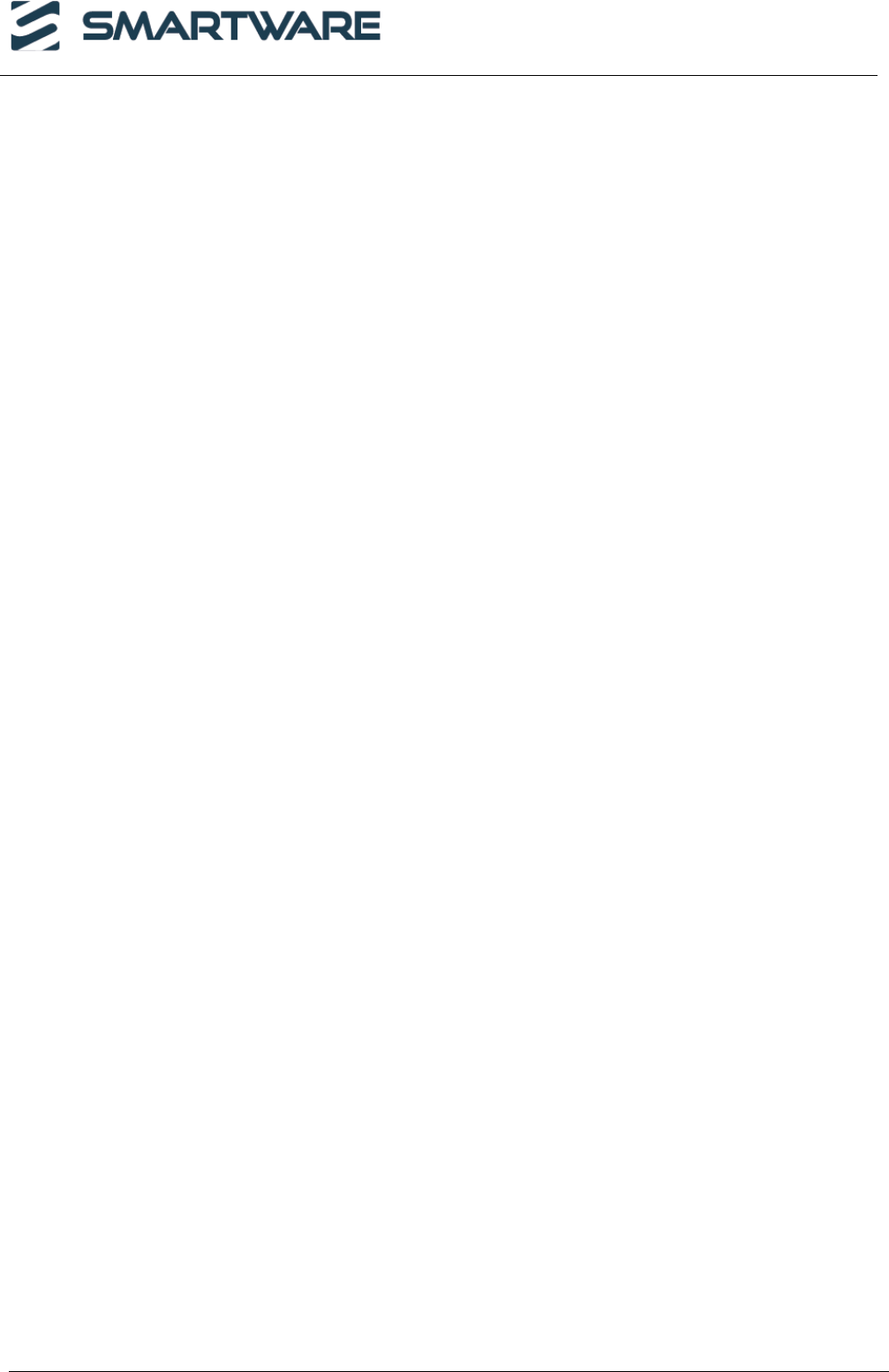
USN1se, USN2se, USN3se - Datasheet V1R01c
© 2016, Smartware CONFIDENTIAL 1
ULTRASMART™ MULTIPLE DUAL INTERFACES FOR PRODUCTION
(USN1se, USN2se, USN3se)
Industrial equipment to personalize contact and contactless smart cards or modules.
Datasheet V1R01c
Date: December 2016
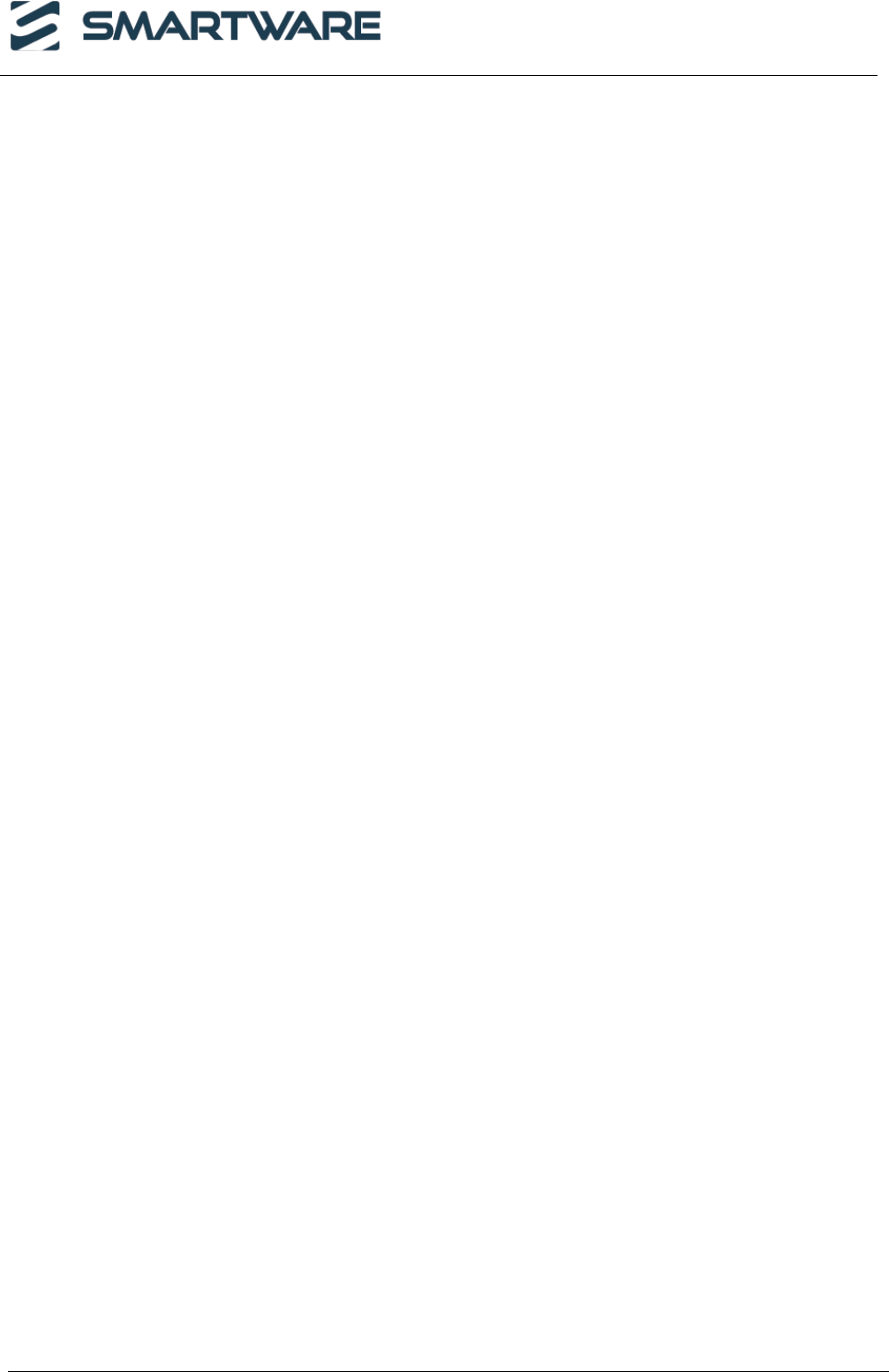
USN1se, USN2se, USN3se - Datasheet V1R01c
2 CONFIDENTIAL © 2016, Smartware
Copyright
All rights of translation adaptation and reproduction by any mean reserved for all the countries.
Any reproduction or any complete or partial representation of the pages published in this work, made
without the written permission of SMARTWARE is illicit and constitutes an imitation, whatever mean is
used. Only reproductions strictly reserved for the private use of the purchaser and not intended to be
used collectively are authorized. So are the short quotations justified by the scientific or informative
nature of the work which they are extracted from (art L.122-4 L. 122-5 and L. 335-2 of the French
Code ruling on intellectual property).
© SMARTWARE, Les ULIS, France, 1999-2016
Disclaimers
Information in this document is subject to change without notice and does not represent a
commitment on the part of SMARTWARE.
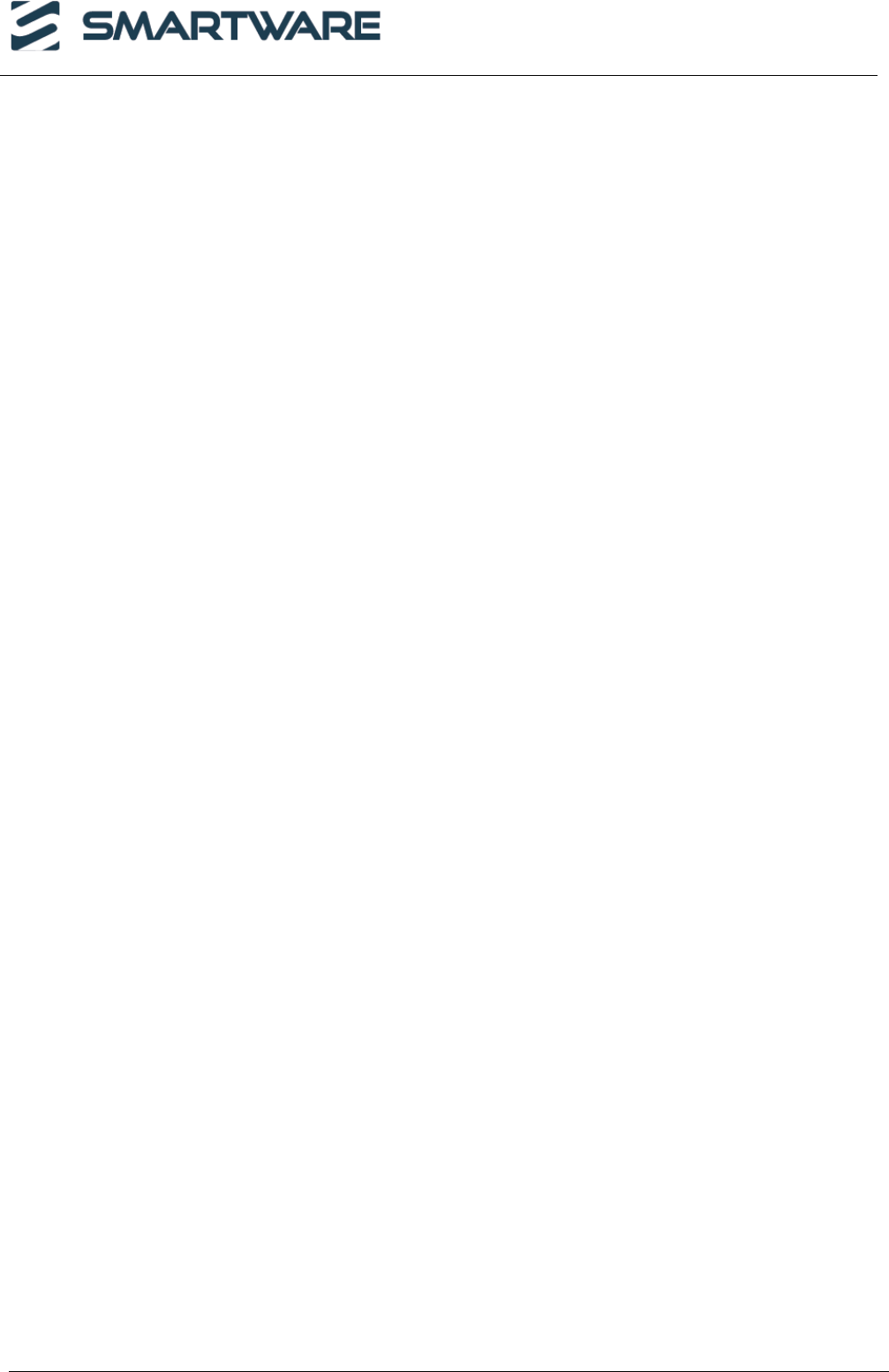
USN1se, USN2se, USN3se - Datasheet V1R01c
© 2016, Smartware CONFIDENTIAL 3
Contents
1 Overview .......................................................................................................... 5
2 Block diagram ................................................................................................. 6
3 Functional description .................................................................................... 7
3.1 Core interfaces ....................................................................................................................... 7
3.2 Contact interfaces .................................................................................................................. 7
3.2.1 ISO/IEC 7816-3/4 ..................................................................................................................... 7
3.2.2 SWP ......................................................................................................................................... 7
3.2.3 Hardware measurements ......................................................................................................... 8
3.3 Contactless interfaces ........................................................................................................... 9
4 Technical characteristics ............................................................................. 10
4.1 Mechanical layouts ............................................................................................................... 10
4.2 Front panels .......................................................................................................................... 12
4.3 Physical interfaces ............................................................................................................... 13
4.3.1 Connectors ............................................................................................................................. 13
4.3.2 Configuration and address switches ....................................................................................... 15
4.3.3 LEDS ...................................................................................................................................... 16
4.4 Electrical characteristics ..................................................................................................... 17
4.4.1 Power Supply ......................................................................................................................... 17
4.4.2 Contact interfaces ................................................................................................................... 18
4.4.3 Contactless interfaces ............................................................................................................ 19
5 Regulatory ..................................................................................................... 20
6 Contact information ...................................................................................... 22
7 Revision history ............................................................................................. 22
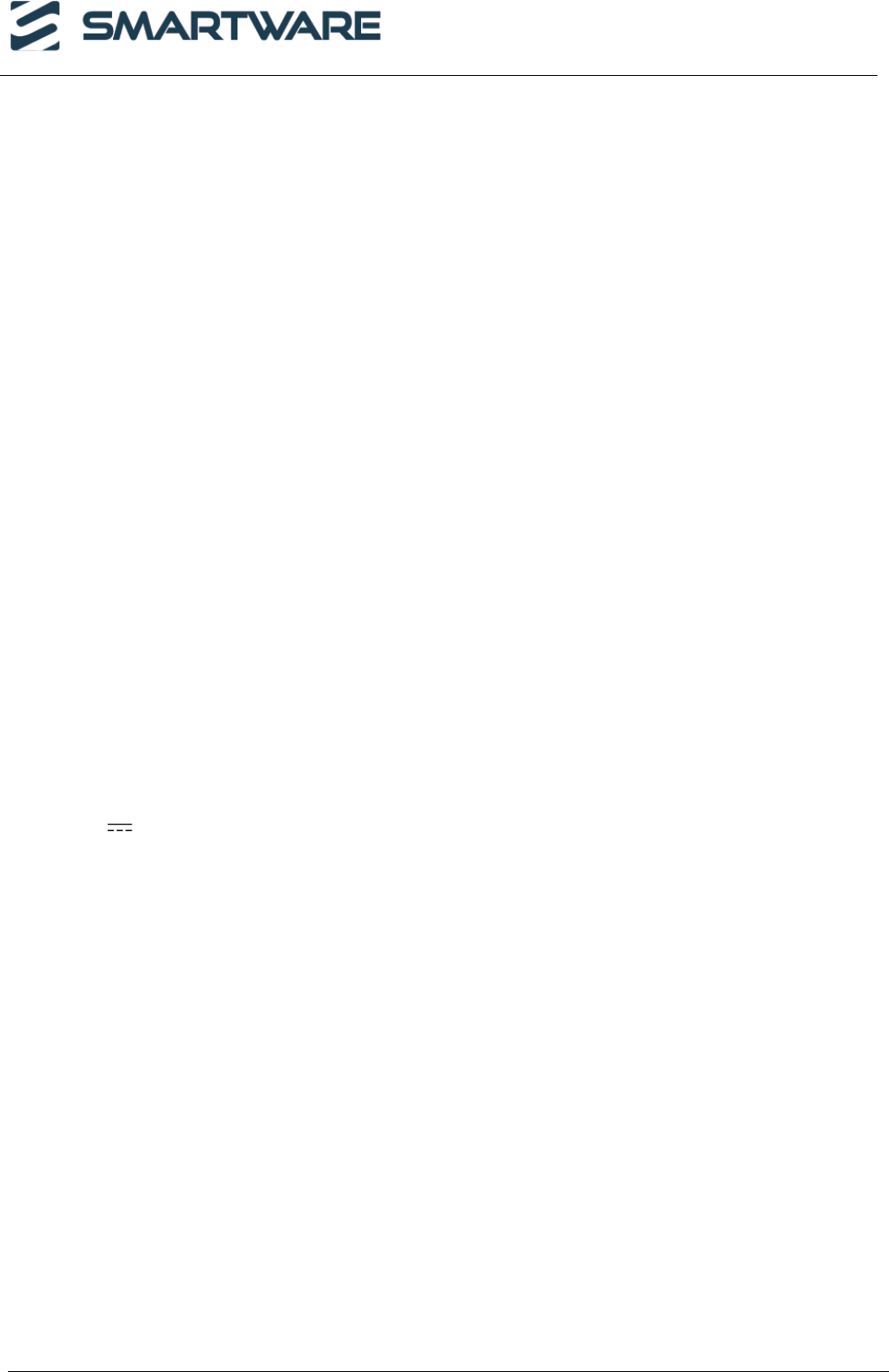
USN1se, USN2se, USN3se - Datasheet V1R01c
4 CONFIDENTIAL © 2016, Smartware
Abbreviations
ACT Activation Protocol
APDU Application Protocol Data Unit
BGT Block Guard Time
BWT Block Waiting Time
CID Card Identifier
CLT ContactLess Tunnelling
CRC Cyclic Redundancy Check
CWT Character Waiting Time
EGT Extra Guard Time
EOF End Of Frame
ESD Electrostatic Discharge
ETU Elementary Time Unit
FDT Frame Delay Time
FSCI Frame Size Card Integer
FSDI Frame Size Device Integer
FWT Frame Waiting Time
HCI Host Controller Interface
LLC Logical Link Control
NAD Node Address
SHDLC Simplified High Level Data Link Control
SFGT Startup Frame Guard Time
SOF Start Of Frame
SPU Standard or Proprietary Use
SWP Single Wire Protocol
WWT Work Waiting Time
Glossary
12 V 3A: 12 Volt 3 Amp Direct Current (DC) power supply
Modulation index: Defined as the voltage ratio (Vmax - Vmin) / (Vmax + Vmin).
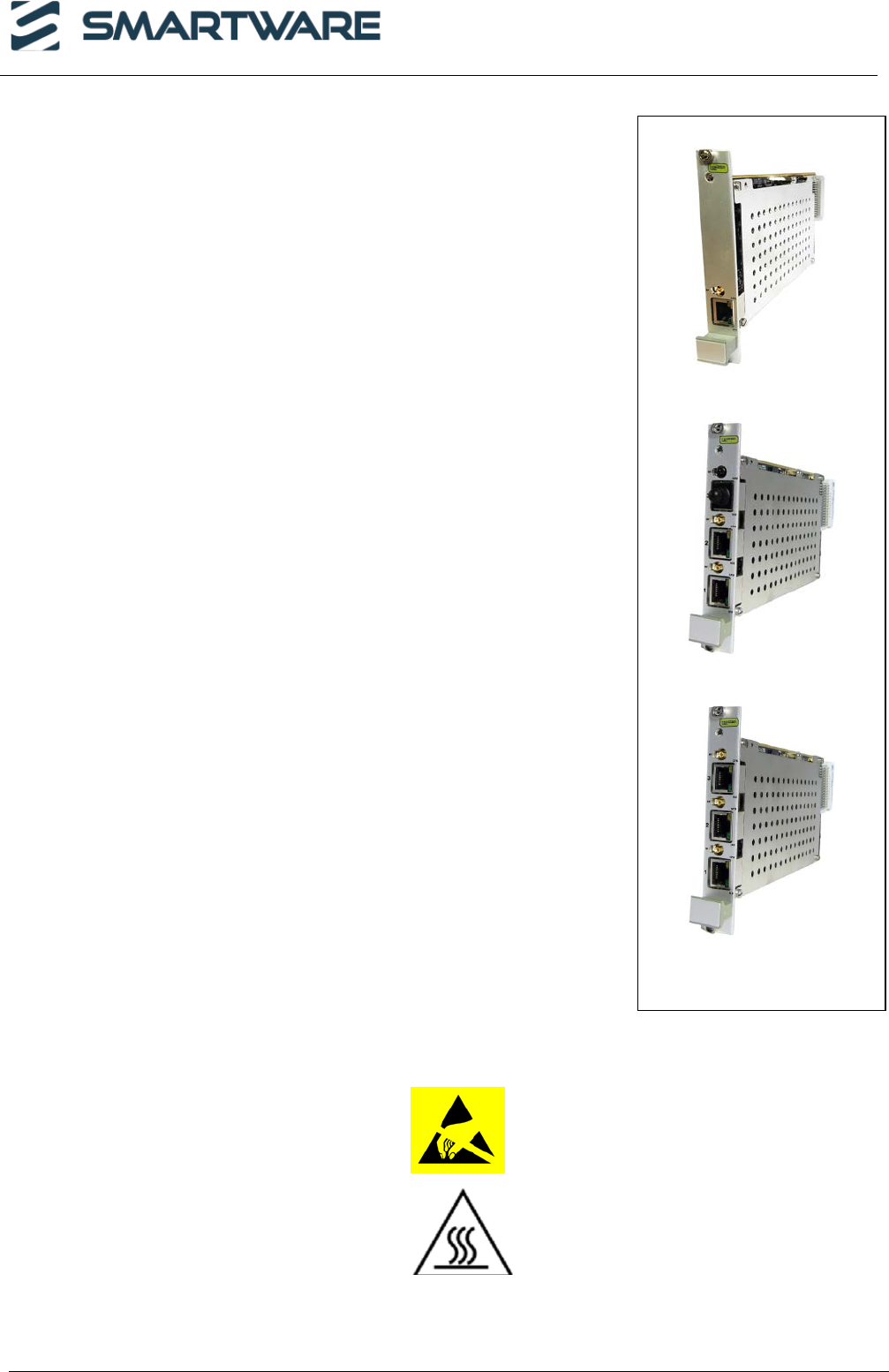
USN1se, USN2se, USN3se - Datasheet V1R01c
© 2016, Smartware CONFIDENTIAL 5
1 OVERVIEW
USN1se, USN2se and USN3se are industrial solutions dedicated to
the personalization of contact and contactless smart cards and
memory cards. These assemblies fulfill any integration based on
Smartware industrial racks.
Core interface features
Hardware specification:
- 32 bit Freescale Coldfire® CPUs running at 240 MHz
- 64 MB of RAM / 8 MB of Flash memories
Contact interfaces features
Supported protocols:
- ISO/IEC 7816-3/4
- SWP
- Synchronous memory
cards
- Proprietary protocols
Electrical tests:
- Continuity measurement
Key programmable parameters:
- Contacts voltage
- Card clock frequency up to 20
MHz
- Communication protocol
parameters
Contactless interfaces features
Supported protocols:
- ISO/IEC 14443-2/3/4
- ISO/IEC 15693-2/3
- MasterCard PayPass
- Sony FeliCaTM
- NXP MIFARETM and
MIFARE PlusTM
- Proprietary protocols
Key programmable parameters:
- RF output level
- Communication bit rate
up to 848 kbps
- Communication protocol
parameters
Other features
In system firmware updates
Target applications
- Production environment
- Contact reader/encoder
- Contactless reader/encoder
Electrostatic
discharge sensitivity
The USN1se, USN2se and USN3se use
semiconductors that can be damaged by
electrostatic discharge (ESD). Observe precautions
for handling. Damage due to inappropriate handling
is not covered by the warranty.
Handling and connections should be done without
power supply. This product includes a hot surface.
A fire enclosure must be provided in the end
product.
USN1se
USN2se
USN3se
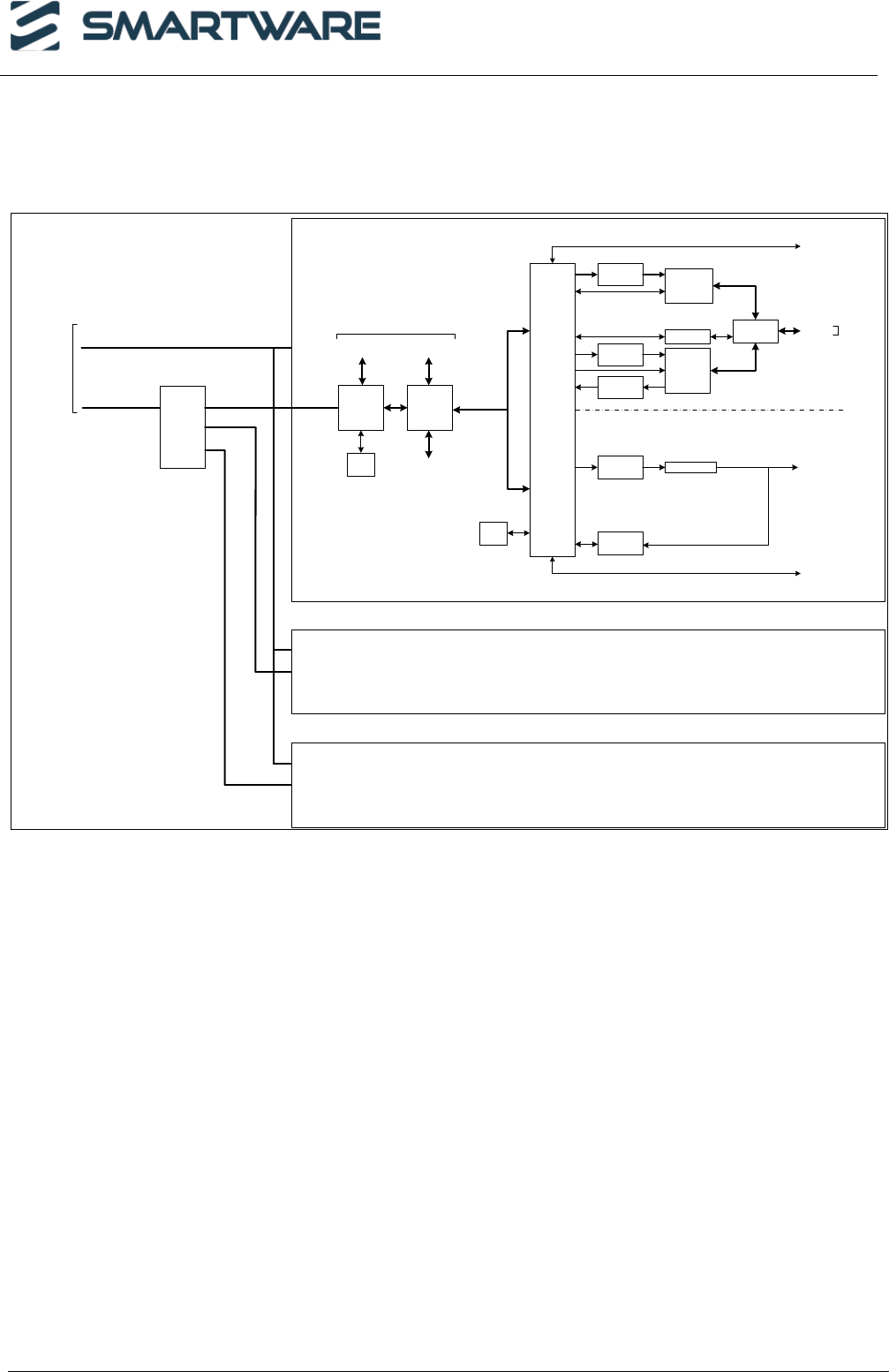
USN1se, USN2se, USN3se - Datasheet V1R01c
6 CONFIDENTIAL © 2016, Smartware
2 BLOCK DIAGRAM
Firmware
(Contact &
Contactless
Interface)
SL-BUS
Logic :
- Interface Led
Contact Interface
Clocks
Logic :
- Interface Led
RF AmplifierRF Modulator
CPU
Serial port 1
CPLD
C1..C8
Contactless Interface
RF Modem
ST5001_X
Flash
RAM
DAC
Voltage Control
Continuity Test
DAC
ADC
Contacts
Switchs
SWP ST5000_X
ST2003_X
CPLD
progaming port
Ethernet
Switch
(USN2e and
USN3e only)
INTERFACE A (USN1se, USN2se, USN3se)
INTERFACE B (USN2se and USN3se only)
INTERFACE C (USN3se only)
To J30 backplane
connector
Ethernet 100 Mbps Ethernet
100 Mbps
Node Offset
Idem Interface A
Idem Interface A
Node Base
Synoptic chart of one communication interface
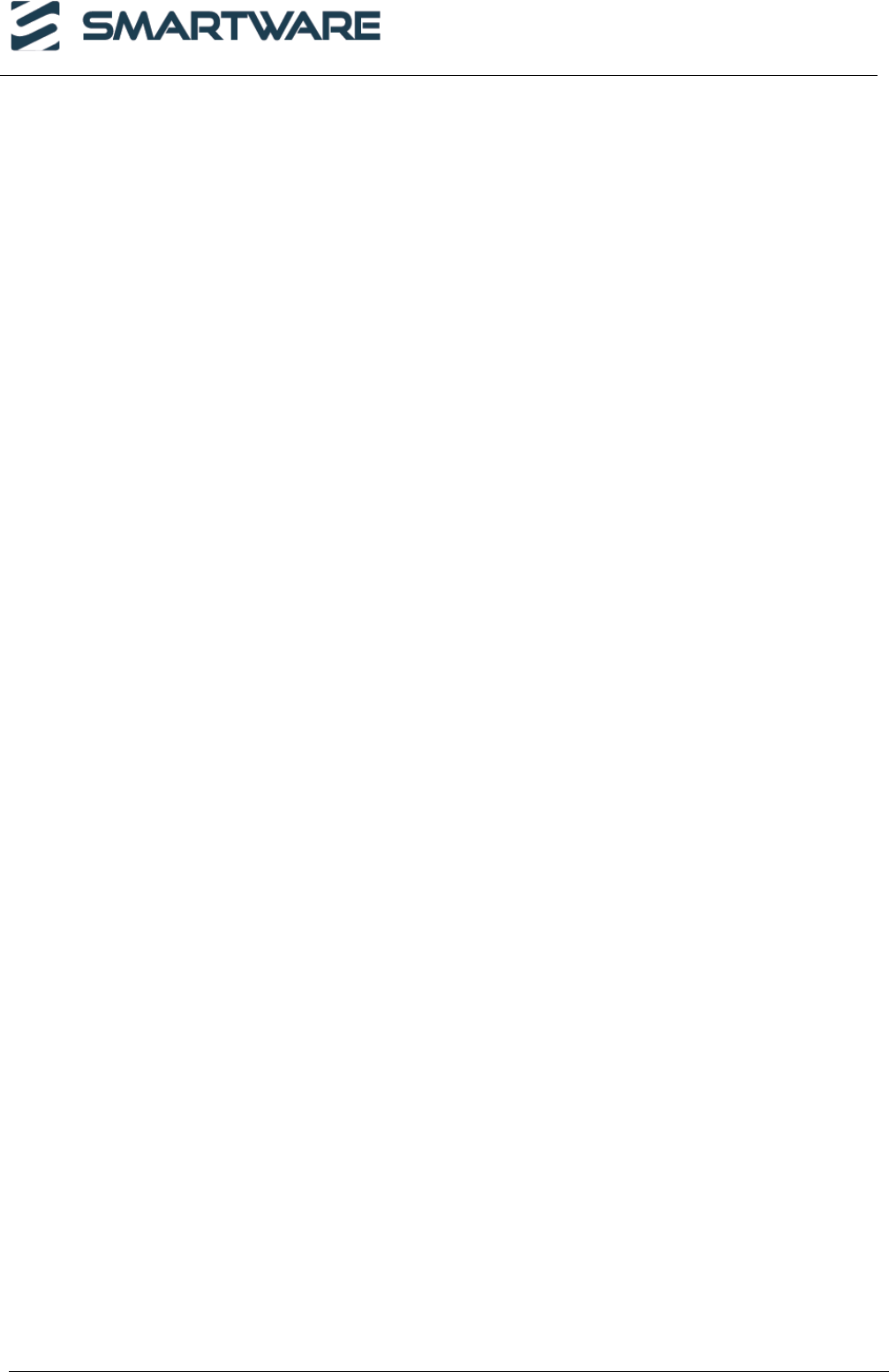
USN1se, USN2se, USN3se - Datasheet V1R01c
© 2016, Smartware CONFIDENTIAL 7
3 FUNCTIONAL DESCRIPTION
USN1se, USN2se and USN3se are Smartware assemblies that include respectively one, two and
three independent US-NANO modules.
Each US-NANO module provides a CPU core and a dual communication interfaces for contact and
contactless smart cards or smart objects.
3.1 CORE INTERFACES
An US-NANO module embeds the last generation of 32 bit Freescale ColdFire® CPU running at 240
MHz, with 64MB of RAM and 8MB of Flash.
MLOS proprietary multitasking operating system provides all resources to connect and use the core
interfaces such as the Ethernet and the Serial ports.
MLOS also manages additional user or system applications to drive all specific hardware resources
like the contact and contactless interfaces.
3.2 CONTACT INTERFACES
3.2.1 ISO/IEC 7816-3/4
CARD system application handles the standard ISO7816 smart card protocol. Its rich interface allows
to perform fast communication exchanges and to subtly configure all protocol parameters.
Non-exhaustive list of software features and configuration parameters:
• Smart cards voltage configuration with support of class A, B and C.
• Smart card clock frequency from 1 to 20 MHz.
• Communication bit rate (ETU).
• Automatic T=0 or T=1 protocol handling.
• Short and extended APDU exchanges.
• Protocol timing specific parameters such as EGT, WWT, BGT, CWT, BWT, etc.
• Character and block error management and recovery.
• Access to contact states for custom protocols.
3.2.2 SWP
SWP system application handles the ETSI standards (TS 102 613 and TS 102 622) to support
exchanges through the Single Wire Protocol.
Non-exhaustive list of software features and configuration parameters:
• Support LLC (ACT, SHDLC, CLT) and HCI layers.
• Supply voltage configuration with support of class B and C.
• Communication bit duration from 0.590us up to 10 us.
• Automatic CRC and Bit stuffing management.
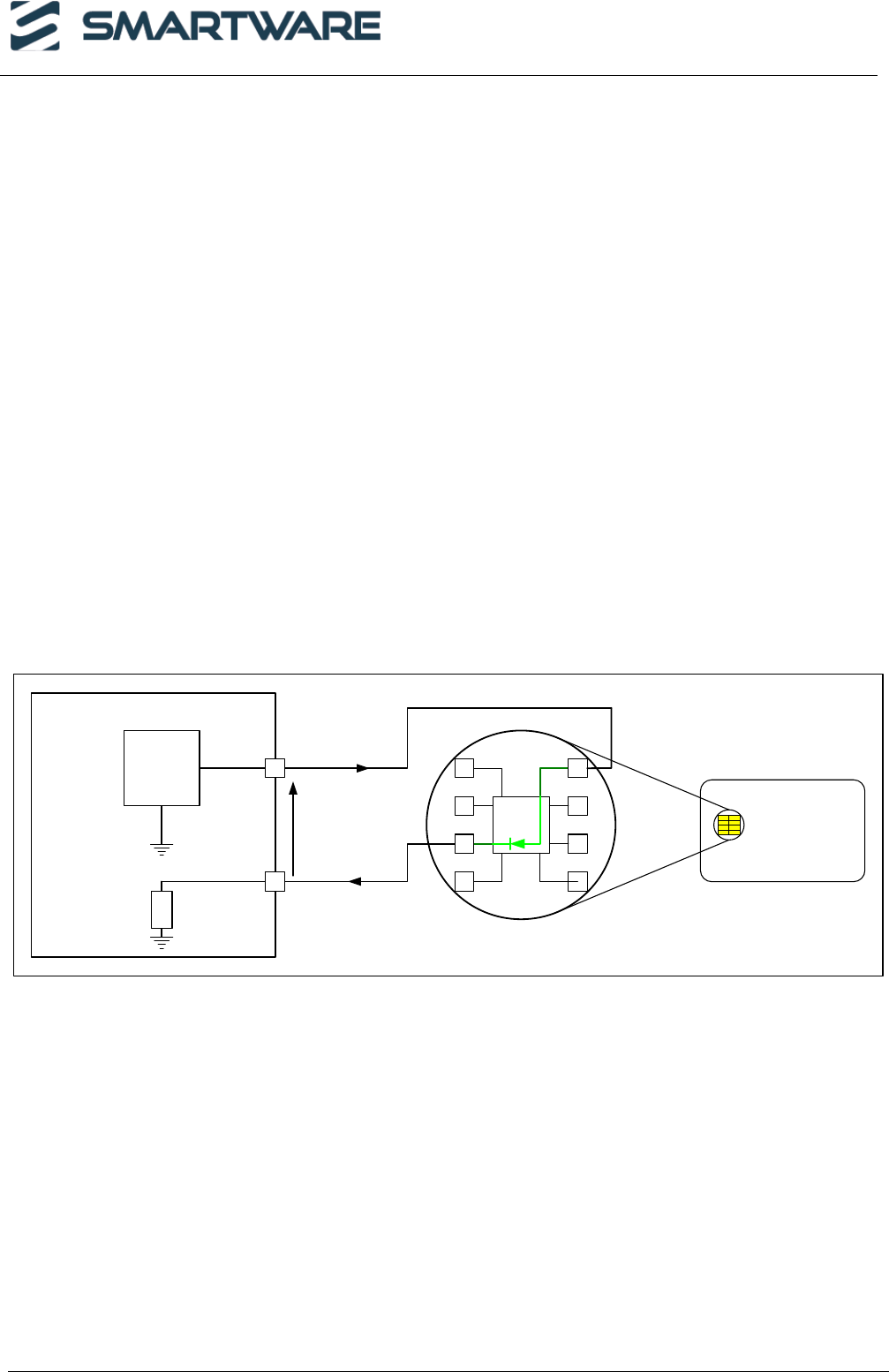
USN1se, USN2se, USN3se - Datasheet V1R01c
8 CONFIDENTIAL © 2016, Smartware
3.2.3 Hardware measurements
Each contact interface has specific resources to perform electrical measurements on the ISO7816
smart cards pads.
These measurements, called continuity tests, check the physical connection between the reader and
the smart card to either detect a defective connection of the head (cable or pins), or a defective smart
card internal bonding.
Through CARD system application interface, the continuity tests can:
• Check the connection from the reader’s contact interface to the smart card pads.
• Measure the serial resistor (due to cable, test head, or deficient contact pin) for each smart card
pad.
• Check the smart card clamp diodes between C1/2/3/4/6/7/8 and C5 and return their threshold
voltage values. With such measurement, the contact can be declared:
- Open (i.e.: no bonding, damaged diode).
- Short (i.e.: wrong bonding, shortcut, damaged diode…).
- Good (bonding and diodes are in conformity).
To properly test one contact, all others contacts shall be in high impedance state, and C5 contact
must be driven by the reader (i.e. it should not be linked to the ground/earth).
ICC
Force
C1
C2 C6
C3 C7
C8
C5
C4
Cx
I
V
C5
R
Voltage measurement of the clamp diode for contact C3
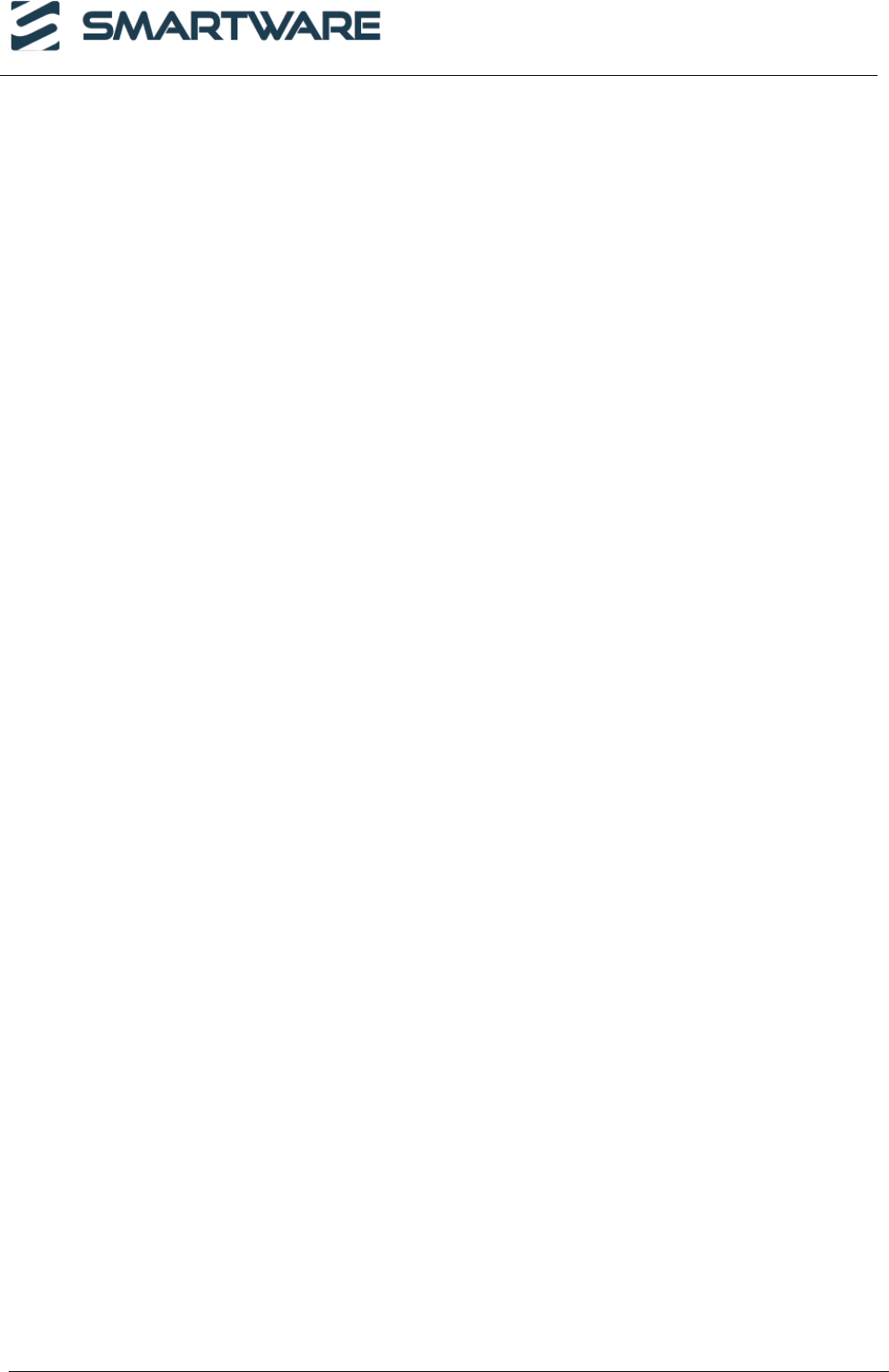
USN1se, USN2se, USN3se - Datasheet V1R01c
© 2016, Smartware CONFIDENTIAL 9
3.3 CONTACTLESS INTERFACES
CARD system application handles all supported contactless smart cards standards or specifications.
It includes:
• ISO/IEC 14443 levels 2, 3 and 4, with the support of both type A and type B cards.
• ISO/IEC 15693 levels 2 and 3.
• MasterCard PayPass
• Sony FeliCaTM
• NXP MIFARETM and MIFARE PlusTM
Non-exhaustive list of software features and configuration parameters:
• Adjustable carrier field strength
• Communication bit rate up to 848 kbps.
• Protocol timing specific parameters such as EGT, FWT, FDT, SFGT, etc.
• Protocol communication specific parameters such as NAD, CID, FSCI, FSDI, SOF, EOF, etc.
• ISO7816 short and extended APDU exchanges.
• Protocol specific error detection and recovery.
• Authentication mechanisms requiring cryptography and ciphered exchanges.
At last, contactless interfaces support both contactless smart cards with inductive coupling to an
antenna and contactless modules with a direct connection to the RF pads.
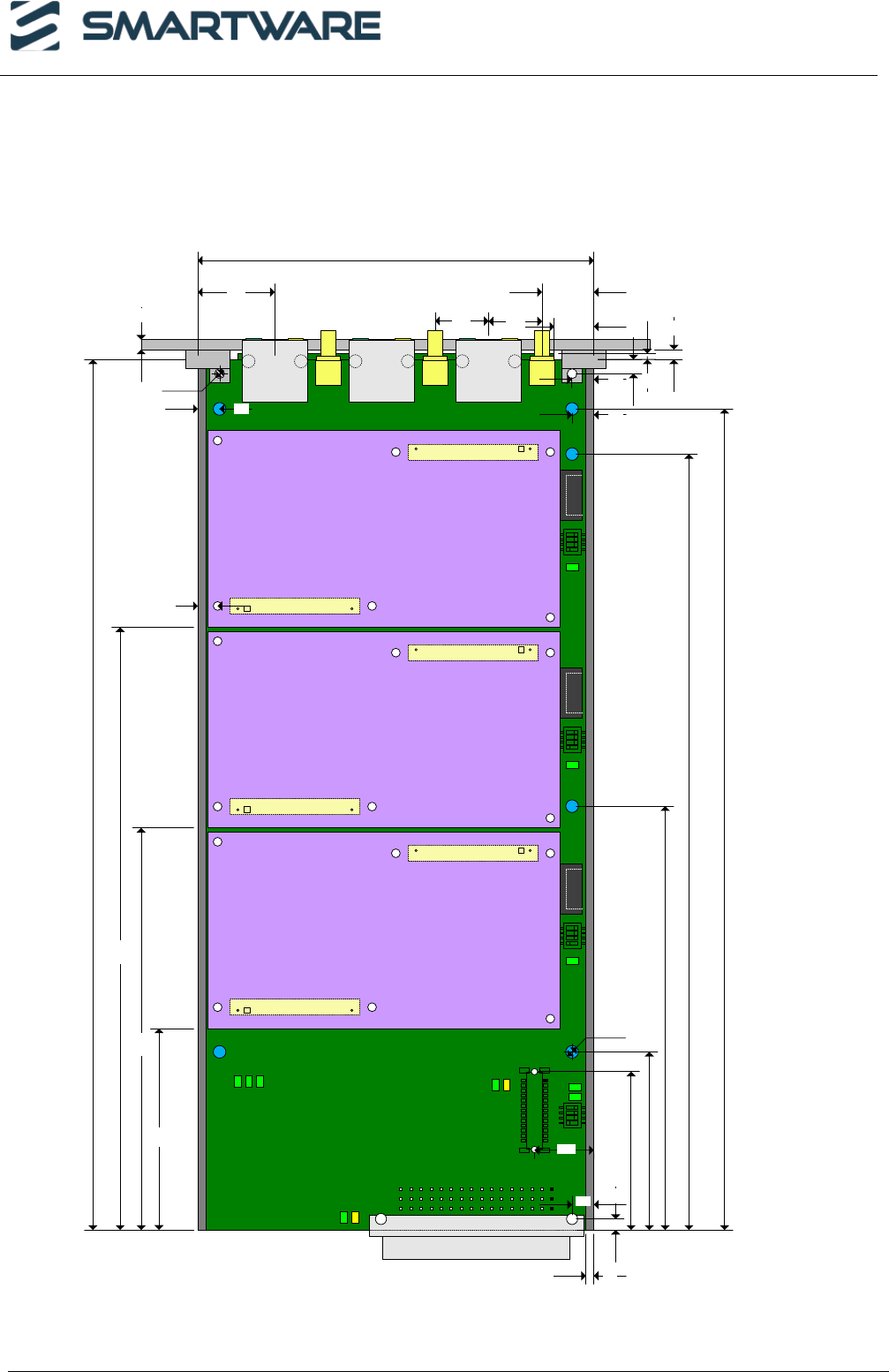
USN1se, USN2se, USN3se - Datasheet V1R01c
10 CONFIDENTIAL © 2016, Smartware
4 TECHNICAL CHARACTERISTICS
4.1 MECHANICAL LAYOUTS
220.00
10,00
2,50
100.00
a
b
c
DIN 41612 C/2
Mâle R/A 16 x 3
13,50 13,50
2,76
5,50
2.00
50,90
12 3 4
101,60
152,30
ABC
C
B
A
13.08
19.42
5,50
12 3 4
InterIO
PowerCom
A
1 2
1 2
2,50
196,10
107,10
45,00
Ø3,20
207,50
3,57
5,55
1,50
5,50
Ø2,70
A1
MS
L4
L1 L2 L3
S4
L5 S5
15,00
40,00
LA
SWCFG
SWA
MSPA
12 3 4
InterIO
PowerCom
B
1 2
1 2
LB
SWB
MSPB
1 2 3 4
InterIO
PowerCom
C
1 2
1 2
5,00
LC
SWC
MSPC
J30
SCA
CLA
SCB
CLB
SCC
CLC
ST8000
USN3se top side view
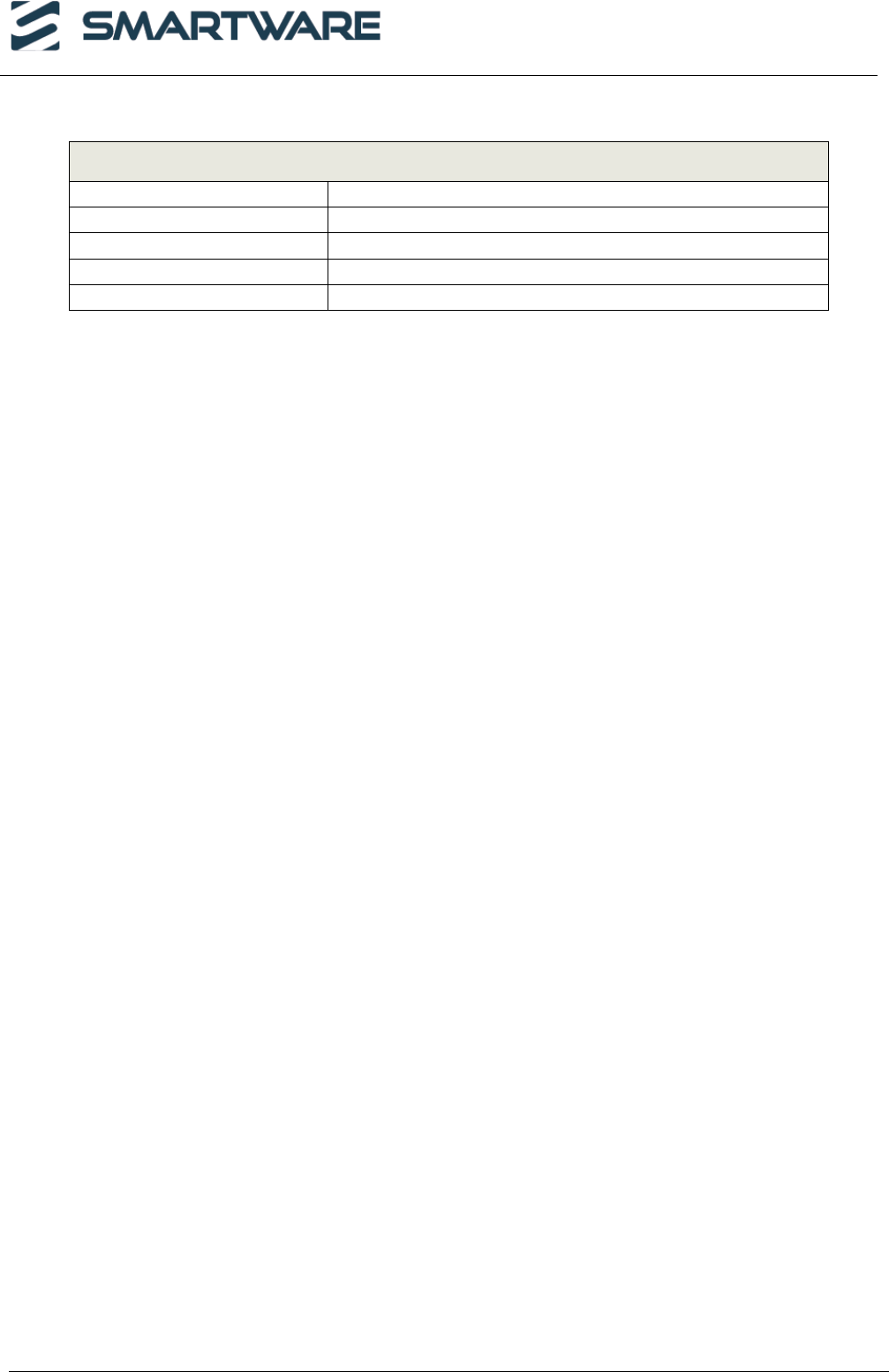
USN1se, USN2se, USN3se - Datasheet V1R01c
© 2016, Smartware CONFIDENTIAL 11
GENERAL
Height
100 mm (3U)
Length
220 mm
Width (USN3se, USN2se)
20.3 mm (4 TE)
Width (USN1se)
17.6 mm (3.5 TE) or 20.3 mm (4 TE)
Weight
360 g (USN3se) – 330 g (USN2se) – 300 g (USN1se)
Components on bottom side are lower than 2 mm.
The fixing attachment holes and side strips are connected to the USN3se and MX3se-3I3P electrical
ground.
USN3se includes all US-NANO interfaces A, B and C.
USN2se includes US-NANO interfaces A and B
USN1se includes US-NANO interface A only.
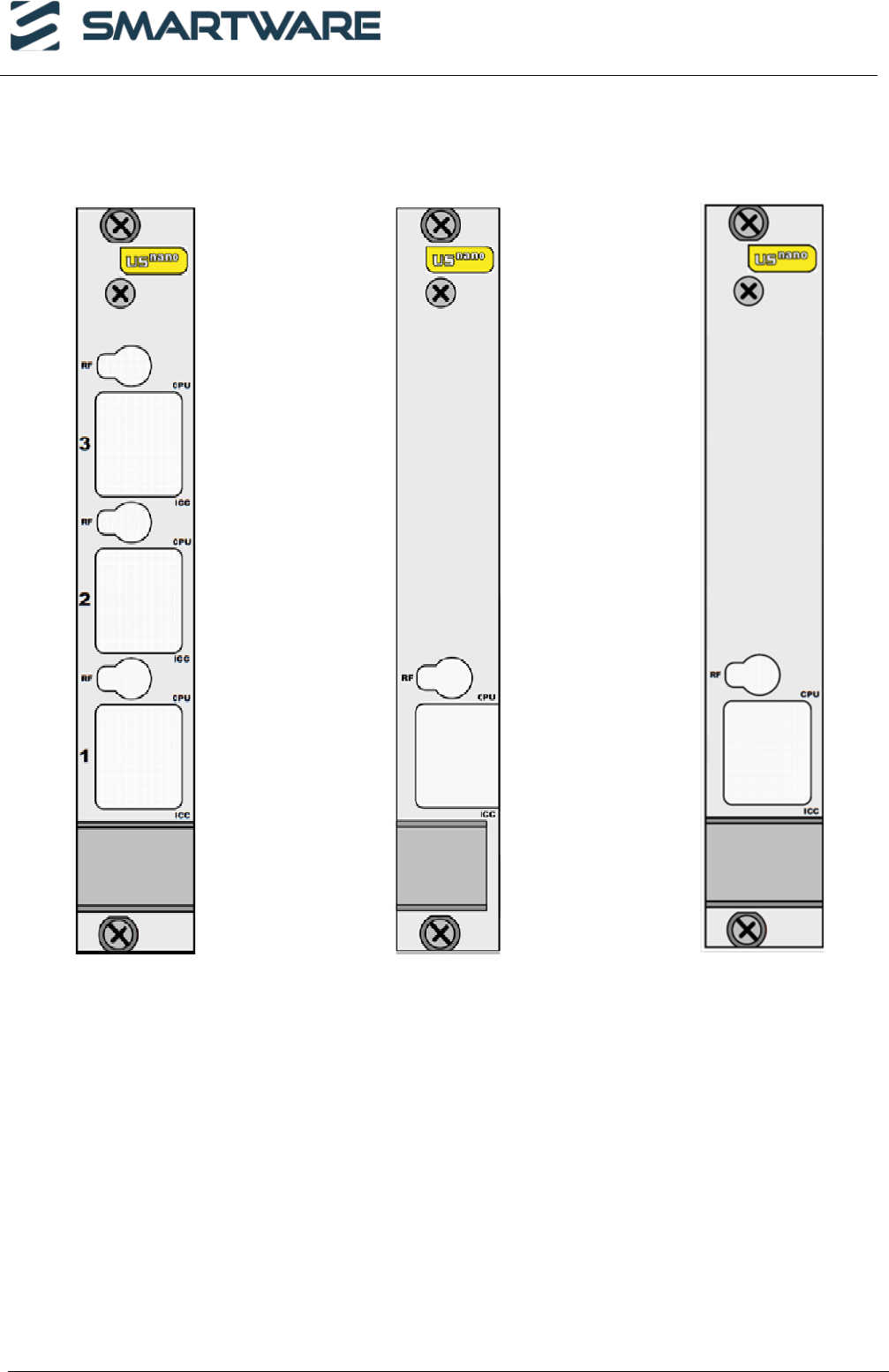
USN1se, USN2se, USN3se - Datasheet V1R01c
12 CONFIDENTIAL © 2016, Smartware
4.2 FRONT PANELS
USN3se and USN2se
3U / 4TE
USN1se
3U / 3.5TE
USN1se
3U / 4TE
USN3se and USN2se have the same front panel. Nevertheless, USN2se has sealing caps on
interface 3.
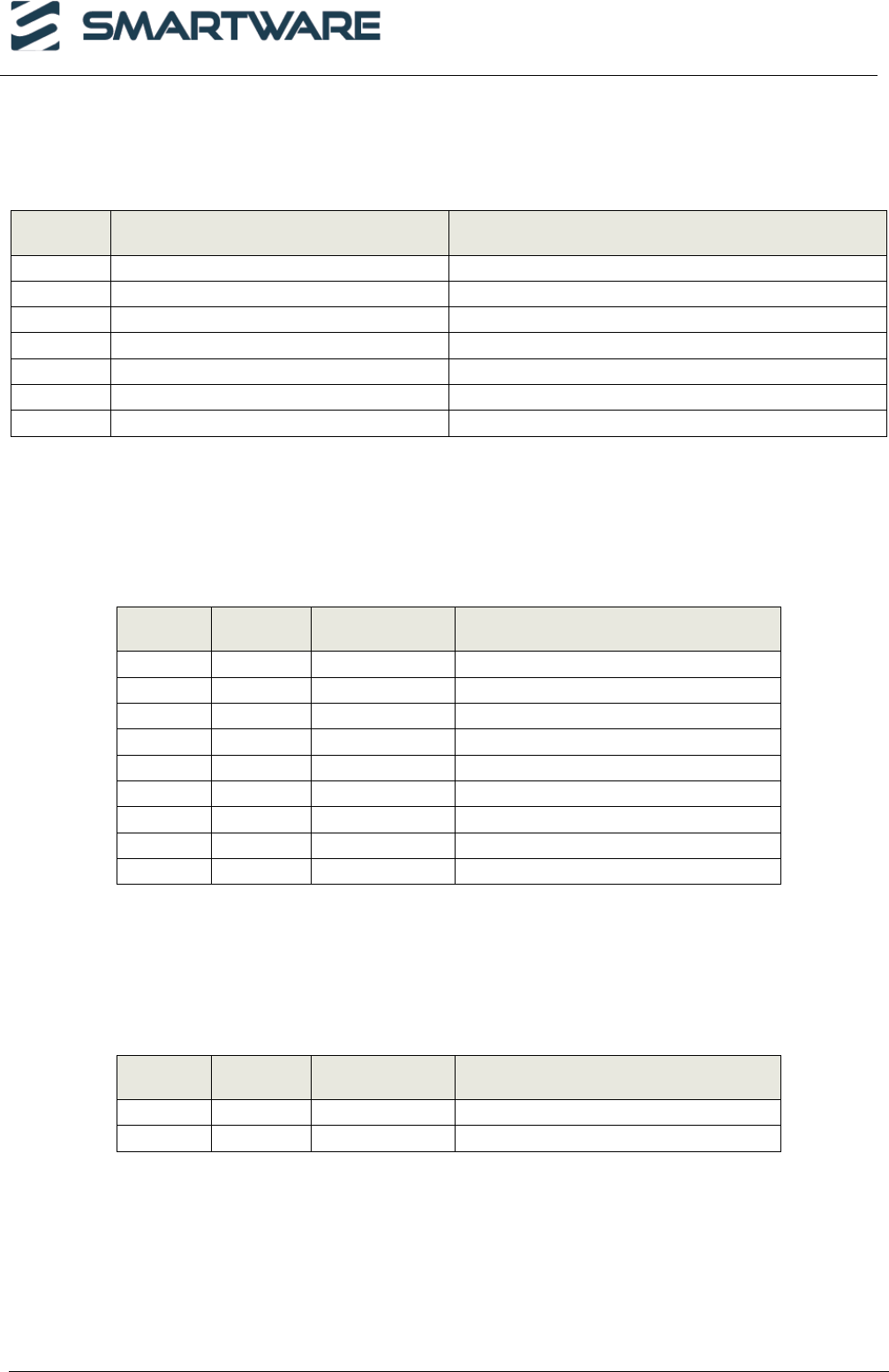
USN1se, USN2se, USN3se - Datasheet V1R01c
© 2016, Smartware CONFIDENTIAL 13
4.3 PHYSICAL INTERFACES
4.3.1 Connectors
NAME CONNECTOR TYPE DESCRIPTION
SC1
RJ45
Contact interface from US-NANO A
SC2
RJ45
Contact interface from US-NANO B
SC3
RJ45
Contact interface from US-NANO C
CL1
SMB
Contactless interface from US-NANO A
CL2
SMB
Contactless interface from US-NANO B
CL3
SMB
Contactless interface from US-NANO C
J30
DIN41612
Backplane interface
4.3.1.1 SC1, SC2 and SC3 description
SC1, SC2 and SC3 connectors provide signals of the contact interfaces. The following table describes
the pinout for all interfaces:
PIN NAME TYPE DESCRIPTION
1
CC3
I/O
C3 smart card contact (CLK)
2
CC5
GND
C5 smart card contact (GND)
3
CC4
I/O
C4 smart card contact (RFU1)
4
CC8
I/O
C8 smart card contact (RFU2)
5
CC1
O
C1 smart card contact (VCC)
6
CC6
I/O
C6 smart card contact (SPU)
7
CC2
I/O
C2 smart card contact (RST)
8
CC7
I/O
C7 smart card contact (I/O)
Shield
GND
GND
Ground
4.3.1.2 CL1, CL2 and CL3 description
CL1, CL2 and CL3 connectors provide signals of the contactless interfaces. The following table
describes the pinout for all interfaces:
PIN NAME TYPE DESCRIPTION
Center
RF_ANT
O
RF output
Body
GND
GND
Ground
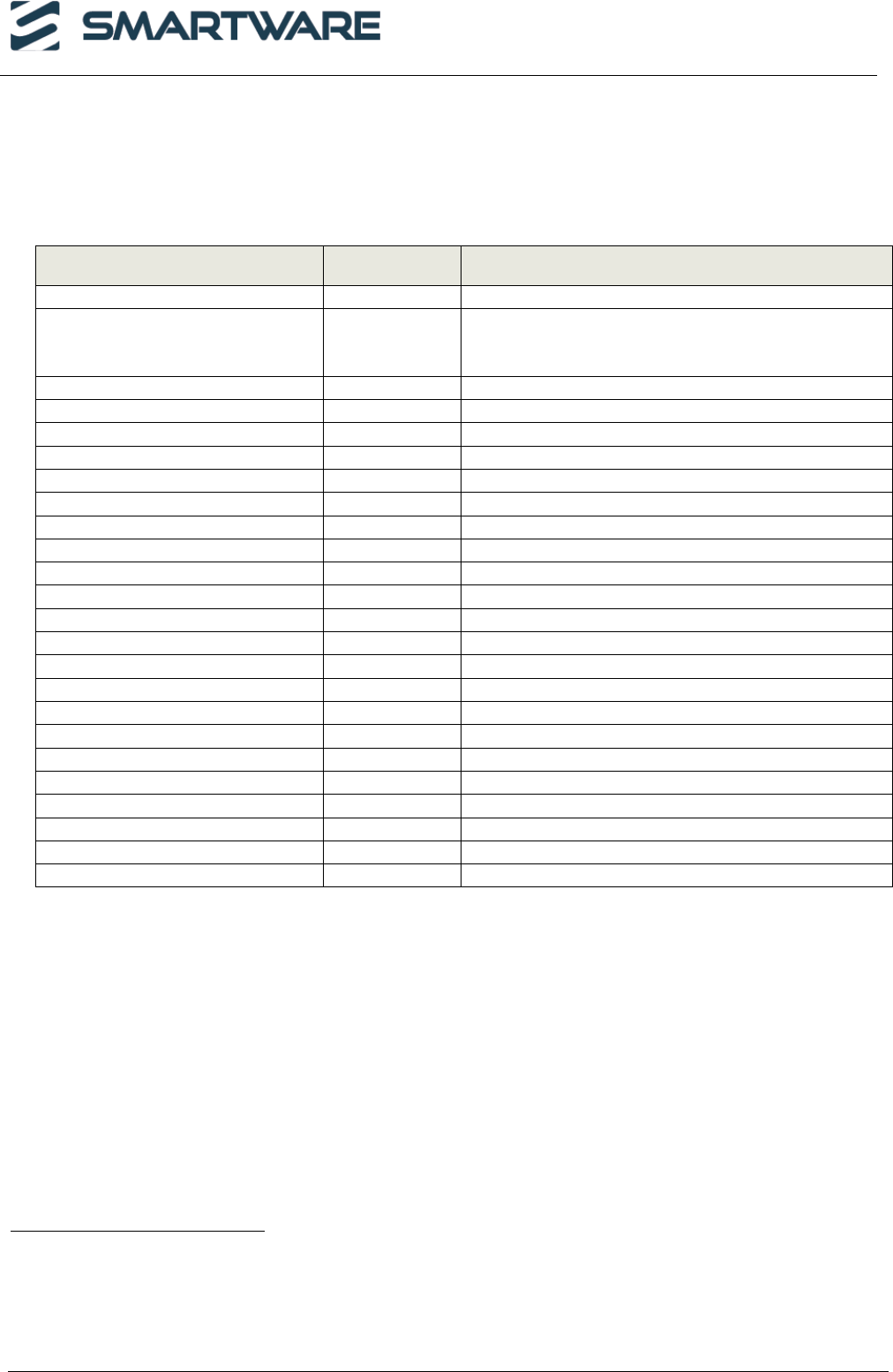
USN1se, USN2se, USN3se - Datasheet V1R01c
14 CONFIDENTIAL © 2016, Smartware
4.3.1.3 J30 description
The DIN41612 connector provides power, node identifier, serial ports, Ethernet port, safe mode, and
LEDs.
PIN NAME DESCRIPTION
A1, A4, B15, C15, B16, C16
Gnd
Ground
A2, B2, C2, A3, B3, C3, A7, B7,
A8, B8, C8, A9, A10, B10, C10,
C11, A14, B14, C14
NC Not connected
A15, A16
+Vaa
Main Power Supply (+12V)
B1
L1Tx
Line 1 RS232 transmit (US-Nano A)
C1
L1Rx
Line 1 RS232 receive (US-Nano A)
B4
Node0
Node Base bit 0
C4
Node1
Node Base bit 1
A5
Node2
Node Base bit 2
B5
Node3
Node Base bit 3
C5
Node4
Node Base bit 4
A6
Node5
Node Base bit 5
B6
Node6
Node Base bit 6
C6
Node7
Node Base bit 7
C7
Safe_Mode
Active low Safe Mode1
B9
+3V3
Internal +3.3V output
C9
LiLed
Active Low Link Led 2
A11
ETH_BP_3P
Ethernet Pair 3 + 3
B11
ETH_BP_3M
Ethernet Pair 3 - 3
A12
ETH_BP_1P
Ethernet Pair 1 +
B12
ETH_BP_2P
Ethernet Pair 2 + 3
C12
ETH_BP_0P
Ethernet Pair 0 +
A13
ETH_BP_1M
Ethernet Pair 1 -
B13
ETH_BP_2M
Ethernet Pair 2 - 3
C13
ETH_BP_0M
Ethernet Pair 0 -
1 Internal pull up resistor
2 Internal serial resistor for current limiting function
3 Termination only
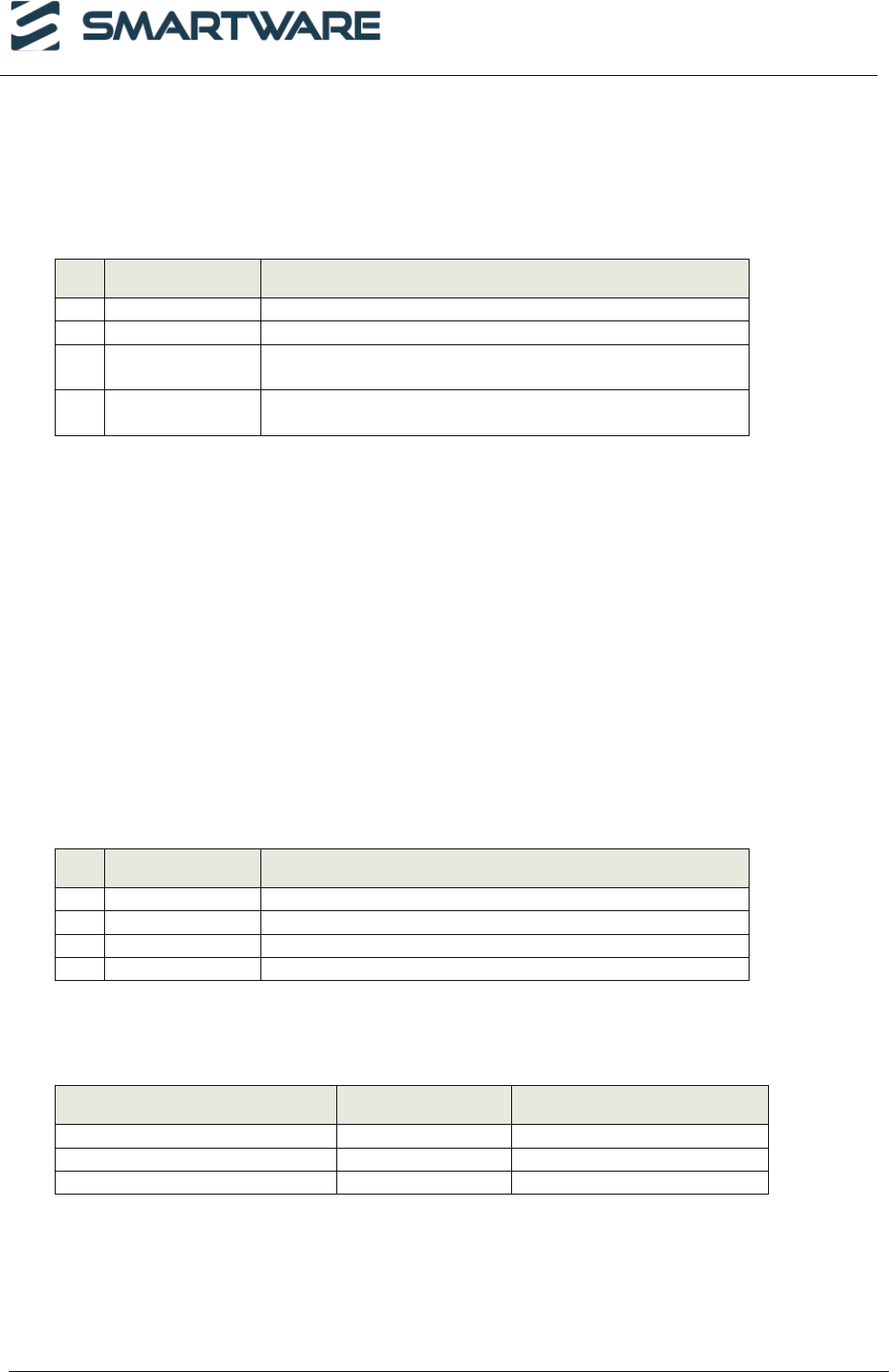
USN1se, USN2se, USN3se - Datasheet V1R01c
© 2016, Smartware CONFIDENTIAL 15
4.3.2 Configuration and address switches
4.3.2.1 SWCFG
This micro switch defines specific configuration modes.
PIN NAME DESCRIPTION
1
Node 7
Node Base (bit 7)
2
Node 6
Node Base (bit 6)
3
Mono Mode
ON : MLOS system in mono mode
OFF : Normal operation
4
Safe Mode
ON : MLOS system in safe mode
OFF : Normal operation
The Safe Mode starts MLOS operating system normally. However, the system uses a default
MLOS.INI configuration file, and does not start any system and user applications.
The Mono Mode does not start MLOS operating system. It only allows to boot the CPU cores, and to
communicate through a Serial port to reload an MLOS operating system.
4.3.2.2 SWA, SWB and SWC
These micro switches set US-NANO A, B and C boards node offset respectively.
An US-NANO unique node value is made from the global node base value (from J30 and SWCFG),
and a specific offset (from SWX switch).
US-Nano Node (interface X) = Node base + Node offset (interface X)
PIN NAME DESCRIPTION
1
Node offset b0
Node offset bit 0
2
Node offset b1
Node offset bit 1
3
Node offset b2
Node offset bit 2
4
RFU
The default configurations of the node offsets are:
MODEL INTERFACE NODE OFFSET VALUE
USN3se, USN2se, USN1se
A
0
USN3se, USN2se
B
1
USN3se
C
2
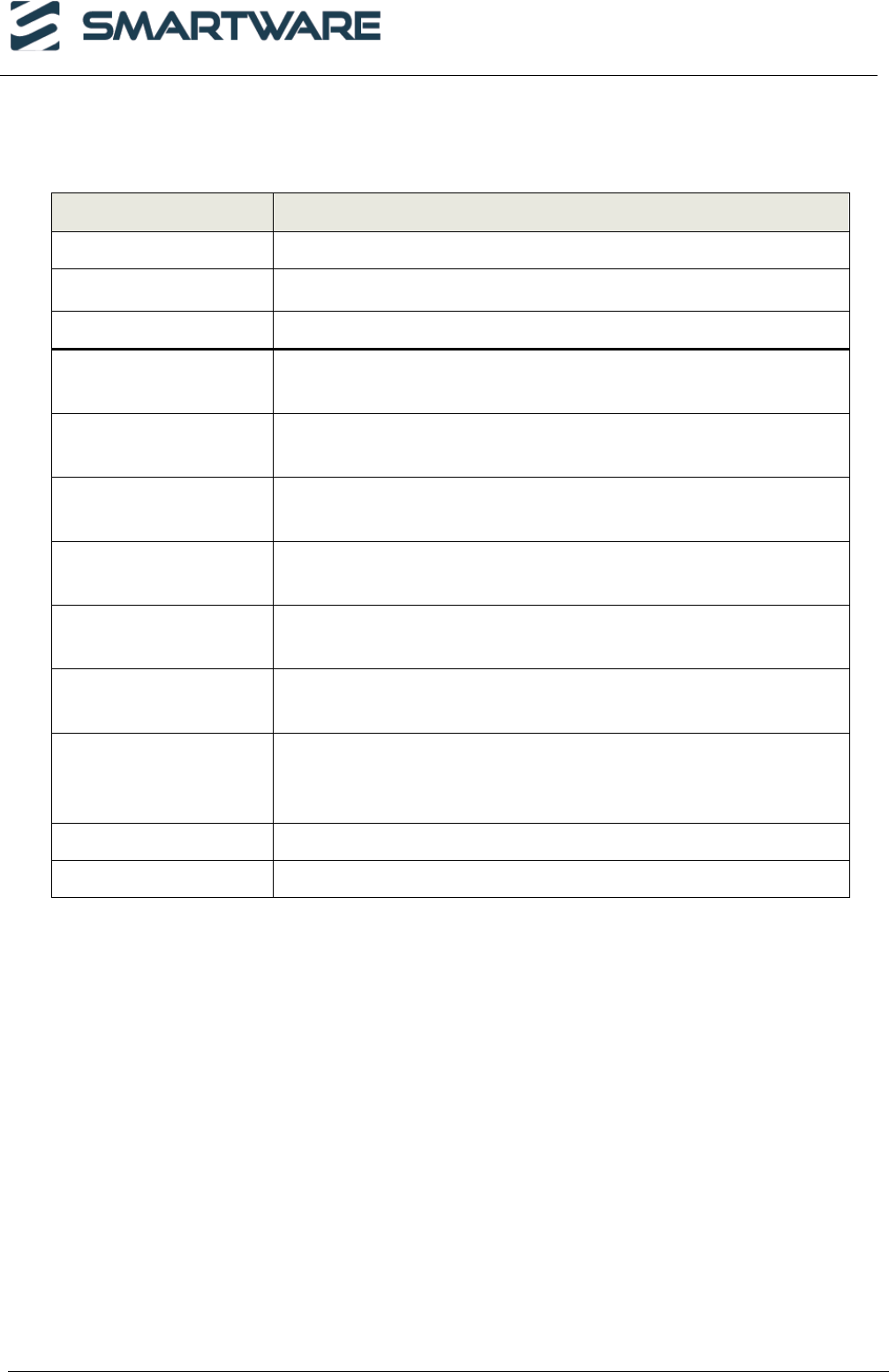
USN1se, USN2se, USN3se - Datasheet V1R01c
16 CONFIDENTIAL © 2016, Smartware
4.3.3 LEDS
NAME DESCRIPTION
SCX_Green Contact interface power on status LED
SCX_Yellow CPU status LED. Blink if CPU is running correctly
CLX_Green Contactless interface power on status LED
S Safe Mode Status
• ON if Safe Mode is activated
M Mono Mode Status
• ON if Mono Mode is activated
L1, LA US-Nano A Ethernet link status
• ON if link is established
L2, LB US-Nano B Ethernet link status
• ON if link is established
L3, LC US-Nano C Ethernet link status
• ON if link is established
L4 Backplane Ethernet link status
• ON if link is established
S4
Backplane Ethernet speed
• ON (100 Mbps)
• OFF (10 Mbps)
L5 Not used for models USN3se and MX3se-3I3P
S5 Not used for models USN3se and MX3se-3I3P
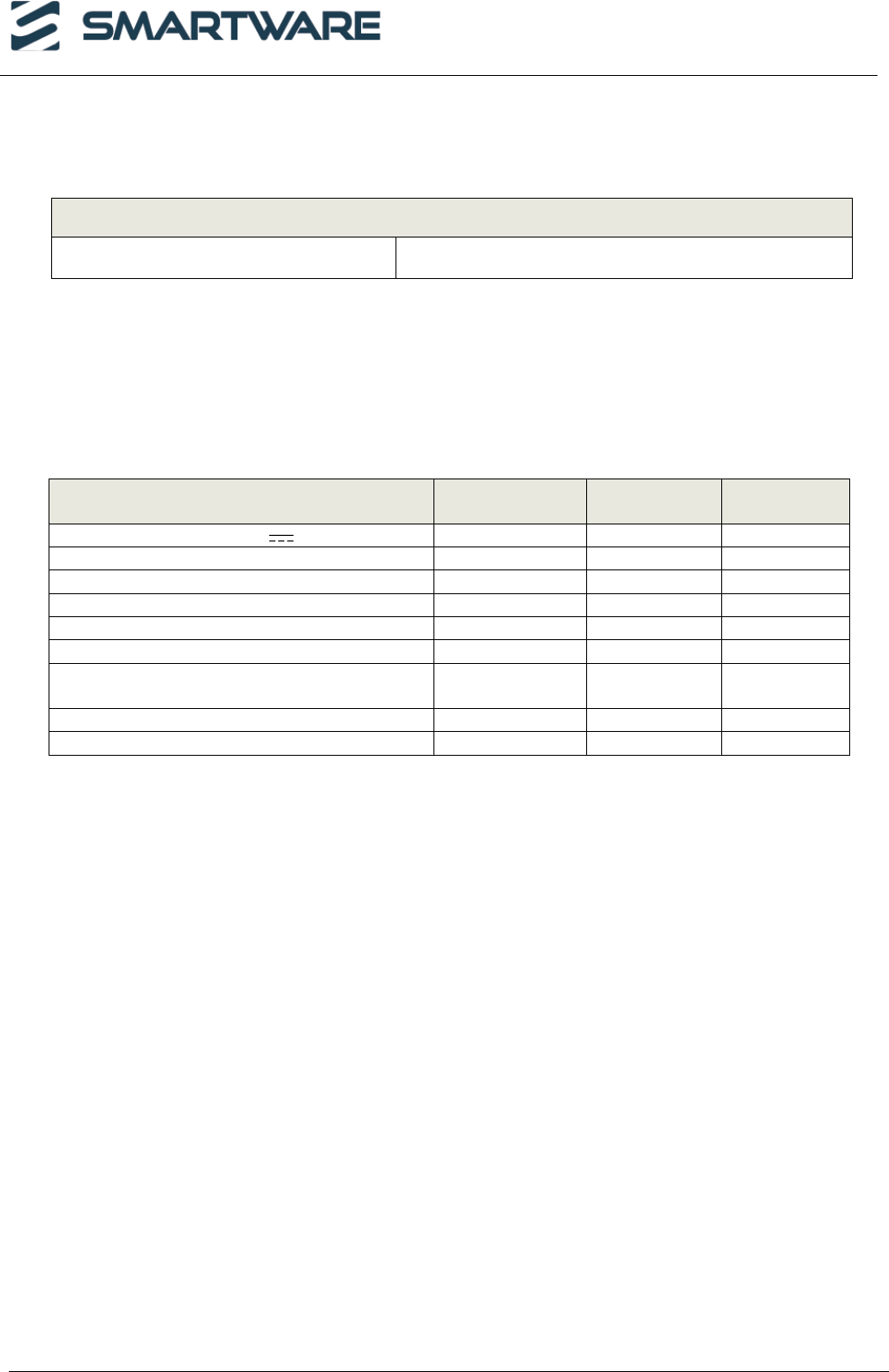
USN1se, USN2se, USN3se - Datasheet V1R01c
© 2016, Smartware CONFIDENTIAL 17
4.4 ELECTRICAL CHARACTERISTICS
GENERAL
Operating environment 0 °C to 40 °C
4.4.1 Power Supply
An USN3se, USN2se or USN1se assembly shall be powered by a 12 Volt 3 Amp Direct Current (DC)
power supply.
POWER SUPPLY ASSEMBLY TYPICAL PRECISION
Rating Voltage (12 V 3A)
12 V DC
±1.2V
Idle Current (Vaa = 12 V)
USN1se
280 mA
USN2se
670 mA
USN3se
950 mA
Maximum Current (V
aa
= 12 V, RF
output short circuited)
USN1se
550 mA
USN2se
1300 mA
USN3se
1850 mA
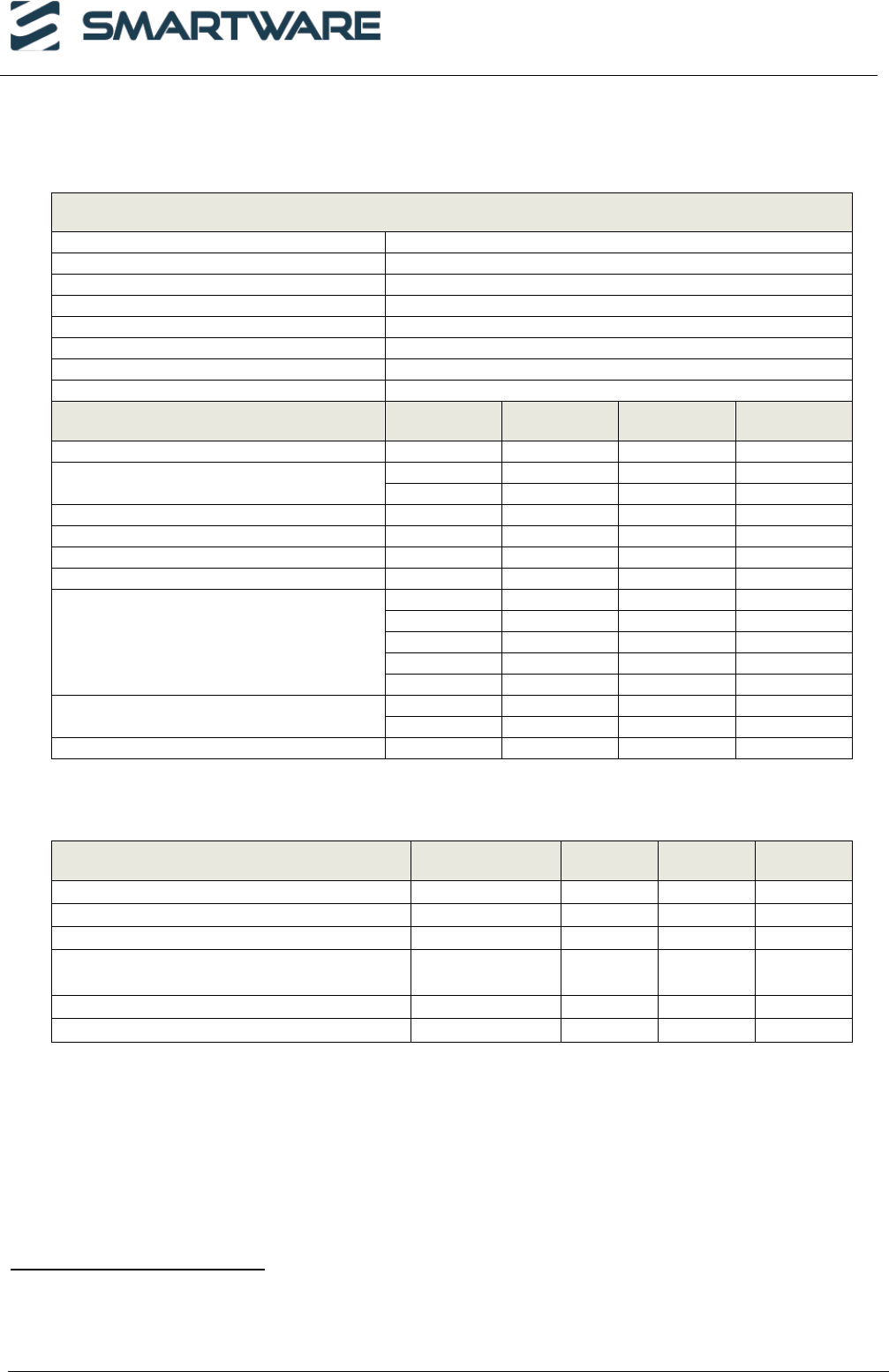
USN1se, USN2se, USN3se - Datasheet V1R01c
18 CONFIDENTIAL © 2016, Smartware
4.4.2 Contact interfaces
4.4.2.1 Pin drivers
CONTACT DRIVING CAPABILITY
C1 (VCC)
Vcc, HiZ
C2 (RST)
VOH, VOL, HiZ1
C3 (CLK)
VOH, VOL, Clock, HiZ1
C4 (RFU1)
VOH, VOL, HiZ1
C5 (GND)
Gnd, HiZ1
C6 (SPU)
VOH, VOL, SWIO, HiZ1
C7 (I/O)
VOH, VOL, Pull-up2, HiZ
C8 (RFU2)
VOH, VOL, HiZ1
CONTACT SIGNAL CAPABILITY Min Max Resolution Precision
Vcc
1.65 V
5.50 V
10 mV
±20 mV
Icc limitation
ISO/SWP Mode
200 mA
VOH
Vcc - 0.1 V
Vcc
VOL
0 V
0.1 V
VIH
0.8 x Vcc
VIL
0.55 V
Current limitation
1.65 < Vcc < 1.95
±4 mA
2.30 < Vcc < 2.70
±8 mA
3.00 < Vcc < 3.60
±24 mA
4.50 < Vcc < 5.50
±32 mA
Clock
ISO Mode
1 MHz
20 MHz
C5 impedance to ground
50 mΩ
4.4.2.2 Hardware measurements
CONTINUITY TEST Conditions Min Typical Max
Resistor measurement range
0 Ω
10 kΩ
Resistor measurement precision
R < 1 kΩ
±100 Ω
R > 1 kΩ
±10 %
Current to measure a clamp diodes
voltage
2,5 mA
3,2 mA
Diode threshold voltage range
0.1 V
2.5 V
Diode threshold voltage precision
0.1 V
1 470 kΩ internal pull-down
2 10 kΩ and 4.7 kΩ software selectable internal pull-ups connected to Vcc
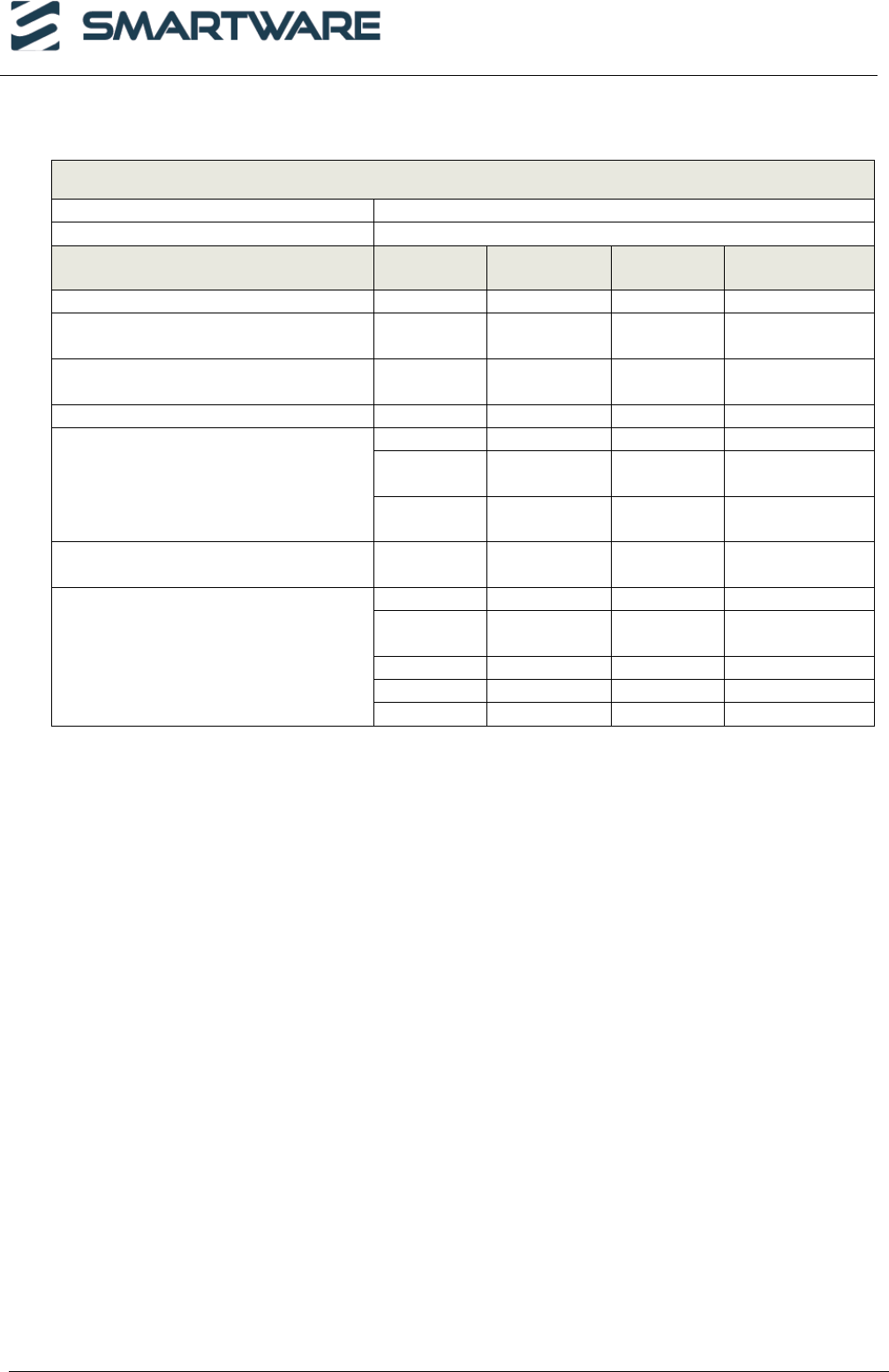
USN1se, USN2se, USN3se - Datasheet V1R01c
© 2016, Smartware CONFIDENTIAL 19
4.4.3 Contactless interfaces
CONTACTLESS DRIVING CAPABILITY
RF output
Modulated RF Signal
CONTACTLESS SIGNAL CAPABILITY Min Max Typical Precision
RF Offset
400 mV
RF Signal peak to peak (R = ∞)
2 Vpp
20 Vpp
± 2% ± 0.05
Vpp
RF Signal power (R = 50 Ω)
250 mW
(+24 dBm)
RF Output Impedance
50 Ω
± 5 Ω
Current limitation
Short circuit current (R = 0 Ω)
RMS
150 mA
Recommended full power
short circuit max duration
60 s
RF Frequency
13.56
MHz
± 7 kHz
Modulation Index
ISO14443 A / PayPass A /
Mifare
90 %
100 %
100 %
ISO14443 B / PayPass B
9.5 %
12.5 %
11 %
ISO15693
9.5 %
12.5 %
11 %
FeliCaTM
9.5 %
12.5 %
11 %
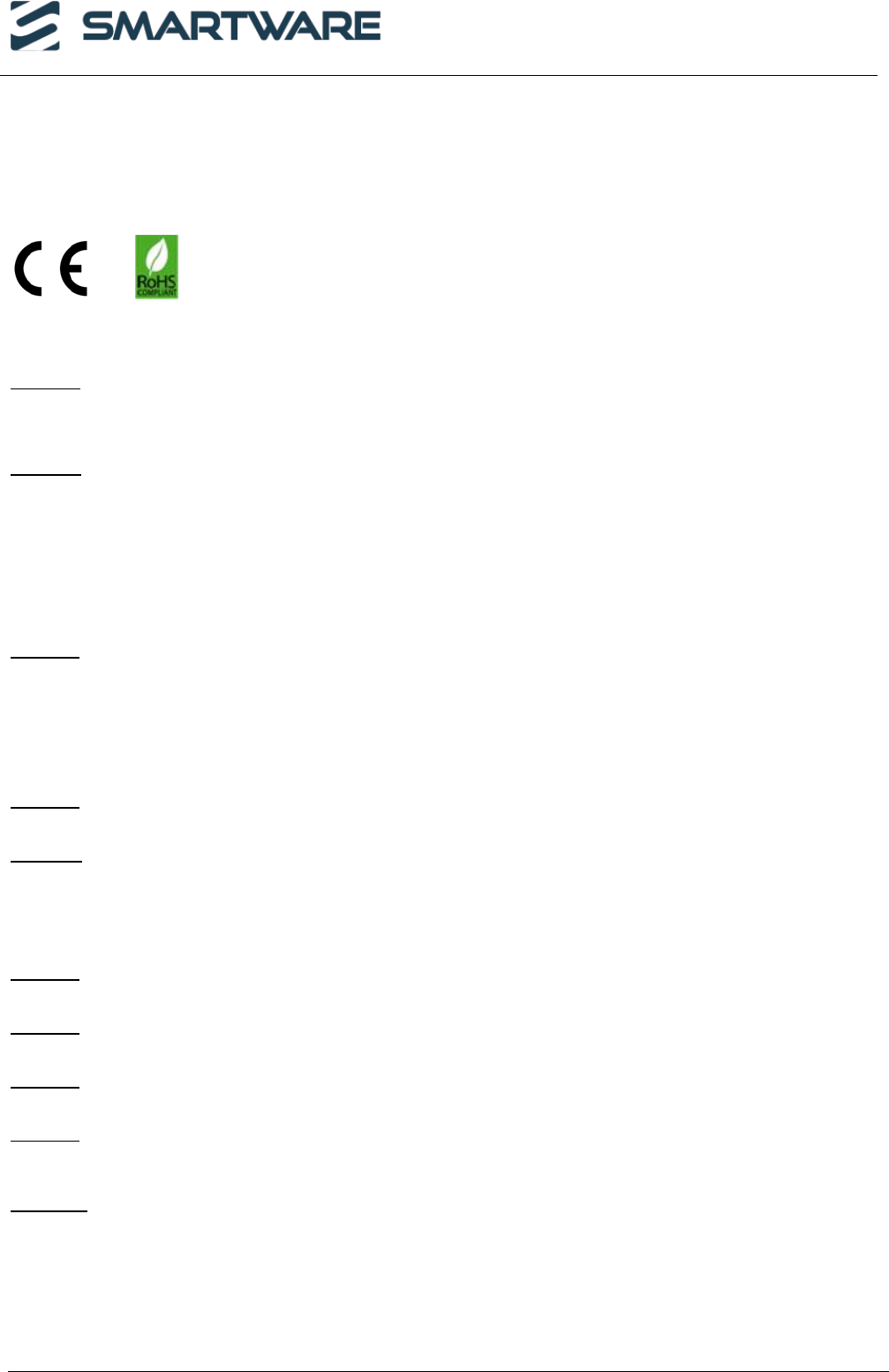
USN1se, USN2se, USN3se - Datasheet V1R01c
20 CONFIDENTIAL © 2016, Smartware
5 REGULATORY
USN1se, USN2se and USN3se models are CE, FCC modular approval, and RoHS compliant.
WARNING TO USERS
Warning 1: The USN1se, USN2se and USN3se models are considered as components that will be operated in combination with the final
equipment. Then, the final equipment (including power supply system) still needs to re-confirm that the whole system complies with the local
EMC directives.
Warning 2: The USN1se, USN2se and USN3se models are low power radiofrequency emitters, and then specific precaution should be
taken to restrict the human presence near the antennas.
We recommend that persons should be at least at 20 cm far from the emitting antennas. This information also has to be mentioned in the
end product.
Access should only be authorized to qualified personal.
If the product is not installed and used in accordance with the instruction manual, it may cause harmful interference to radio
communications.
Warning 3: To reduce the risk of fire or injury to persons, follow these instructions:
All maintenance and servicing of this device must be performed in a safe area away from hazardous locations. Disconnect all power before
servicing.
Use an earthed bracelet to avoid ESD damages.
Power supply must be SELV, no energy hazard.
Warning 4: To comply with directives, the backplane Ethernet cable length should be less than 3 meters.
Warning 5: This device has been designed to operate with the antenna(s) listed below. Antennas not included in this list are strictly
prohibited for use with this device
List of acceptable antenna(s):
- T77x49x2
Warning 6: Use of shielded contact cable (with ferrite ref Würth 74271733) is mandatory to comply with standards.
Warning 7: To comply with directives, RF power may be set from power 0 to power 10.
Warning 8: In case of collocated transmitters, the maximum number of transmitters in a small place should be 48.
Warning 9: The product shall not be modified without written authorisation of Smartware. Changes or modifications not expressly approved
by the party responsible for compliance could void the user's authority to operate the equipment.
Warning 10: The end product’s sticker should mention that it “contains a FCCID: RPM-USN3D201 product.

USN1se, USN2se, USN3se - Datasheet V1R01c
© 2016, Smartware CONFIDENTIAL 21
Warning 11:
WARNING TO USERS IN THE UNITED STATES
Federal Communication Commission Interference
Section 15.105 Information to the user
(a) For a Class A digital device or peripheral, the instructions furnished the user shall include the following or similar statement, placed in a
prominent location in the text of the manual:
Note: This equipment has been tested and found to comply with the limits for a Class A digital device, pursuant to part 15 of the FCC Rules.
These limits are designed to provide reasonable protection against harmful interference when the equipment is operated in a commercial
environment. This equipment generates, uses, and can radiate radio frequency energy and, if not installed and used in accordance with the
instruction manual, may cause harmful interference to radio communications. Operation of this equipment in a residential area is likely to
cause harmful interference in which case the user will be required to correct the interference at his own expense.
This device (USN1se, USN2se and USN3se models) complies with Part 15 of the FCC Rules. Operation is subject to the following two
conditions: (1) This device may not cause harmful interference, and (2) this device must accept any interference received, including
interference that may cause undesired operation.
NO UNAUTHORIZED MODIFICATIONS
47 CFR Section 15.21
CAUTION: This equipment may not be modified, altered, or changed in any way without signed written permission from Smartware.
Unauthorized modification may void the equipment authorization from the FCC and will void the Smartware warranty.
This device complies with FCC RF radiation exposure limits set forth for general population (uncontrolled exposure). This device must be
installed to provide a separation distance of at least 20cm from all persons and must not be collocated or operating in conjunction with any
other antenna or transmitter other than authorized in the present document.
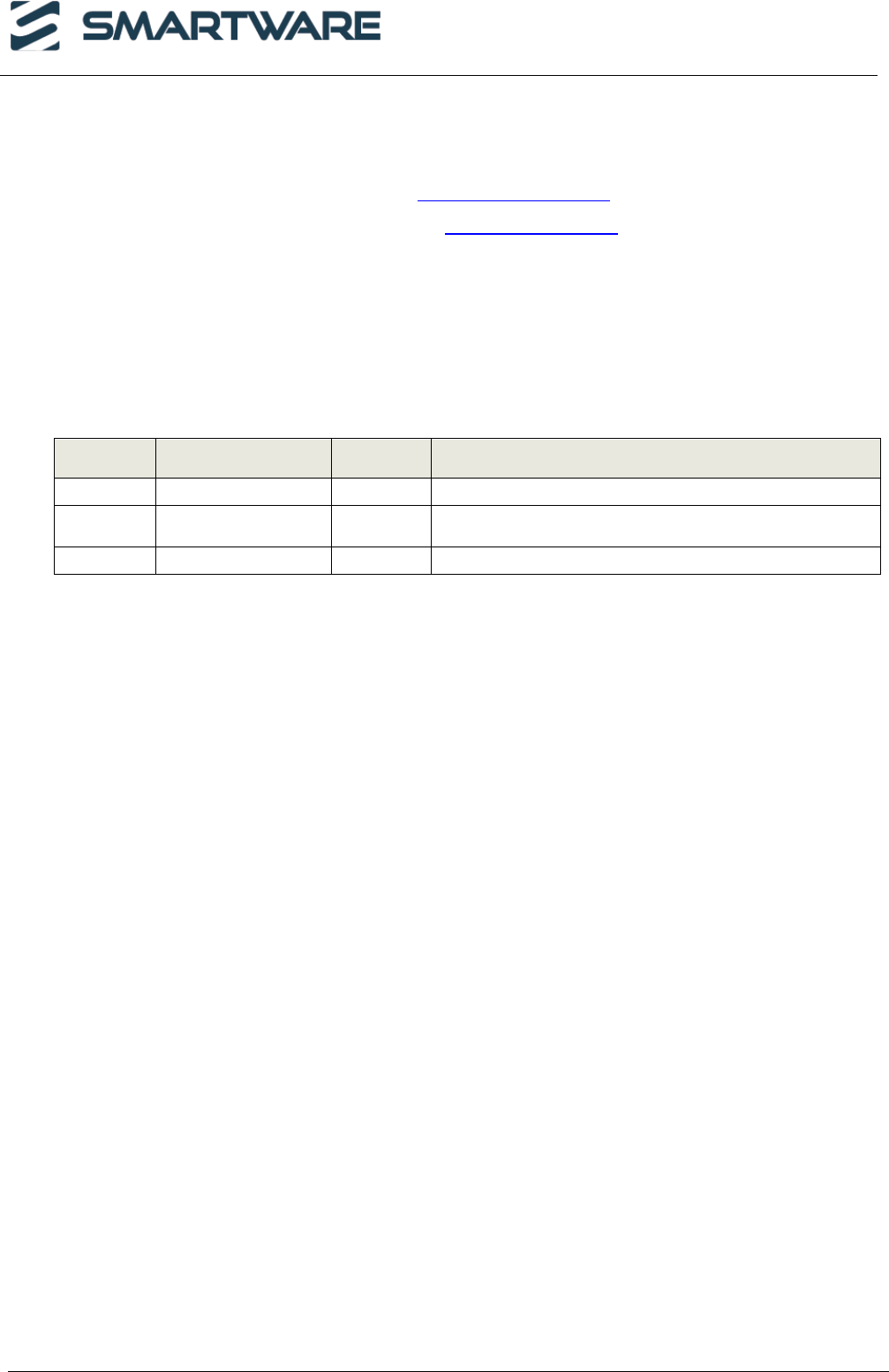
USN1se, USN2se, USN3se - Datasheet V1R01c
22 CONFIDENTIAL © 2016, Smartware
6 CONTACT INFORMATION
For more information, please send an email to: support@smartware.fr
For ordering information, please send an email to: sales@smartware.fr
7 REVISION HISTORY
VERSION DATE AUTHOR CHANGES
V1R01c
December 2016
DM
Update Overview chapter
V1R01b
November 2016
DM
Add Regulatory section.
Editorial corrections
V1R01a
July 2016
SHM
Original version